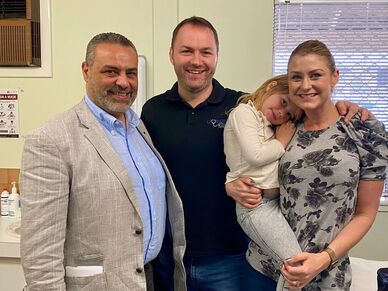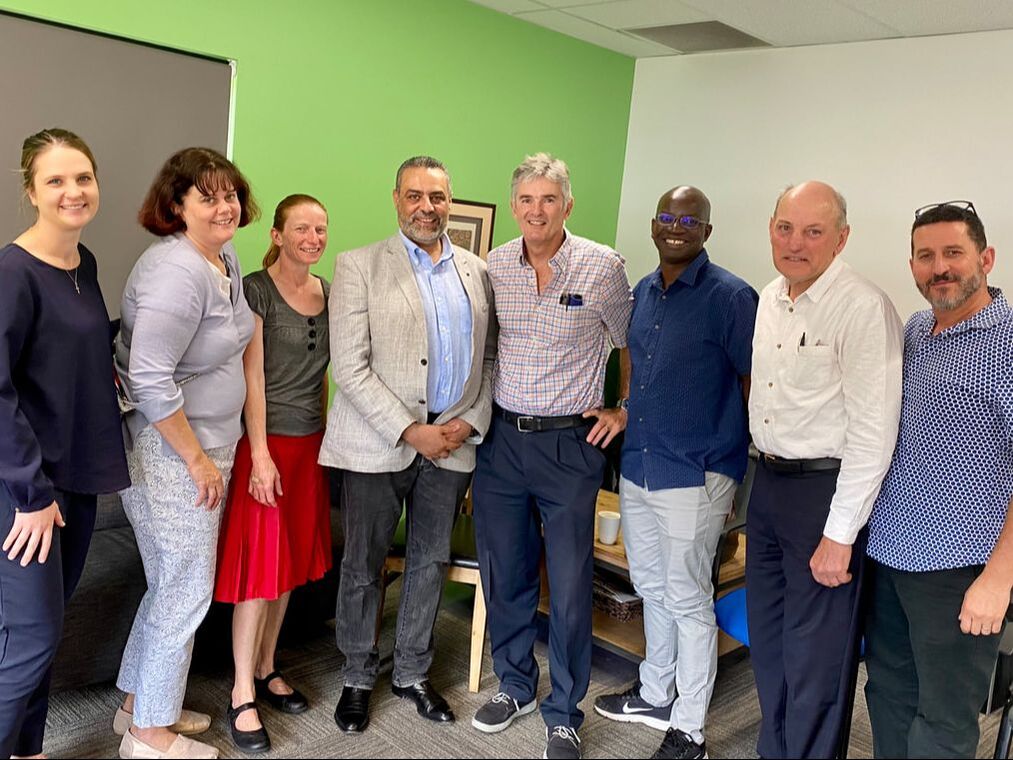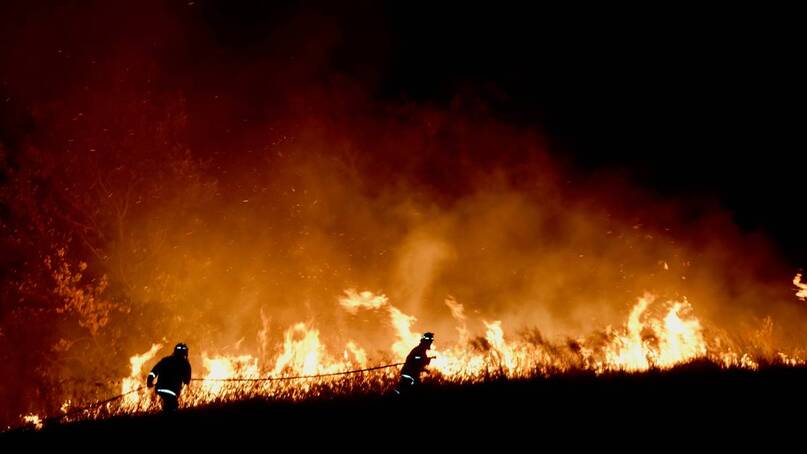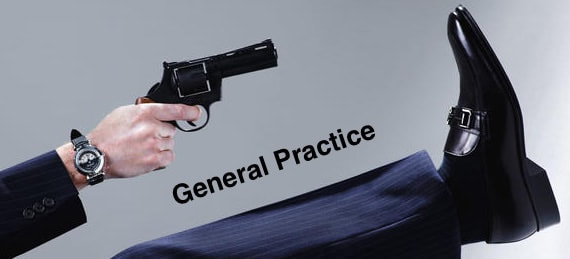|
Comprehensive community general practice, coupled with emergency management, is the heart that will keep rural generalism alive
I recently had the opportunity to spend a few days in Western Australia meeting with GPs, government officials and experts in rural and remote health. It is apparent that comprehensive community general practice, coupled with emergency management is the heart that will keep rural generalism alive. This was evident during my visit. The leadership of GPs such as Dr Michael Mears in Esperance and Dr Michael Livingston in Ravensthorpe demonstrated how rural generalism is thriving. I met Dr Mears and 11 of his colleagues, early one morning. This group of 12 GPs, representing a number of local GP clinics, provide comprehensive primary care, as well as emergency medicine, anaesthetic, obstetrics and surgical services. They shared with me their collaborative model for addressing patient need within their community. They are outstanding educators and are committed to supporting the next generation of rural GPs. I enjoyed the opportunity to discuss the RACGP’s vision for general practice and to hear their ideas for the future of rural generalism. I was also privileged to meet with Dr Michael Livingston at his practice in Ravensthorpe. His practice supports a community of 2000 people and he is a passionate rural generalist. His approach to comprehensive patient care is leading to outstanding health outcomes. It was also great to meet with his wife and family. The commitment and sacrifice they offer to the community of Ravensthorpe is remarkable. Michael shared with me his concerns about the viability of general practice in rural WA communities and the impact on patient care from a lack of integration between Commonwealth and State governments. Michael has many ideas for enhancing the sustainability of general practice in rural and remote Australia. When I am next in Canberra, I intend to speak to the issues and ideas shared with me in Esperance and Ravensthorpe. I am keen to ensure that MPs and government officials hear and act upon the voice of grassroots GPs. The visit to WA gave me the opportunity to meet with leaders and rural health experts at a number of relevant agencies including WAGPET, WA Department of Health, WACHS, Rural Health West, the AMA, Rural Clinical School of WA and the WA Primary Health Alliance. I was briefed on the challenges of recruiting health professionals to work in rural WA and how communities thrive when there is continuity of care from a GP. It was good to receive an update on the efforts of many to provide medical students, junior doctors and registrars with fantastic education and training experiences. Rural and remote WA is a wonderful place to learn how to become a great GP. I have returned from my trip, energised about rural general practice and inspired by my colleagues in WA. I extend my appreciation to Adj Professor Janice Bell and her team at WAGPET for arranging the visit. I also wish to acknowledge the following individuals who meet with me and shared their expert knowledge on rural health care in Western Australia.
Photo 1: Dr Michael Livingston and family in Ravensthorpe, Western Australia Photo 2: Dr Mears and colleagues in Esperance, Western Australia Dr Ayman Shenouda
1 Comment
When we stand together, great change is possible
I love being a GP. I love being part of the general practice profession. Our community of GPs is vibrant and diverse. We are passionate about the profession of general practice and compelled to improve the health of our patients and families. As I think about how to make general practice even better, I think about creating new opportunities for GPs to come together. I believe it is through working together that we can make change happen. In my experience, collaboration to bring about change is never clear cut, quick or easy. It is messy, fragmented, divisive, confusing and draining. However, collaboration when it works can bring about change that was never thought possible. Throughout my career I have joined committees and working groups in a hope my voice and actions will contribute to bringing about change. Sometimes these roles have led to positive outcomes, other times I have become frustrated at the barriers put in the way of positive progress. One of my most positive experiences, in collaborating for change, has been as Chair of RACGP Rural. It has been in this role that I have seen how change can happen. One such change, achieved through the collaboration of many GPs across Australia, relates to rural generalist medicine. The focus of the rural generalist reforms have been about obtaining recognition and subsequent remuneration for the advanced skills of rural general practitioners. Debates have centred on how to enable general practitioners to work in both primary care and hospital settings in rural communities. It has also been about supporting the next generation of rural general practitioners to acquire and maintain skills in advanced areas of general practice. I am optimistic that the rural generalist reforms, championed by so many GPs, will be positive for the profession and for rural communities. Bringing about fundamental change to general practice is hard. I have seen general practitioners spend their whole careers championing rural general practice and rural generalist medicine. I have seen them represent their profession on committees and working groups where change has not seen possible. But I have seen how change can happen, when there is alignment on vision, sustained leadership, a willingness to try something new and a commitment to collaboration. Hard working general practitioners know how to get things done. When these same GPs find commonality and a way to work together change becomes possible. I am hopeful as a profession we can create other opportunities to come together to make general practice the profession of choice for young doctors. I am keen to hear your ideas. How can we work together to make change happen in general practice? Send me your thoughts or give me a call. Dr Ayman Shenouda Bushfires continue and the essential role of GPs in supporting their communities
This week, it has been heartening to learn about the contribution of general practitioners during the Australian bushfire crisis. A number of GPs have contacted me to share their experiences. The recent RACGP article on the role of GPs in Merimbula is a great example of GPs coordinating the health care needs of their fire affected community. https://www1.racgp.org.au/newsgp/professional/paper-cups-for-spacers-oxygen-from-dive-shops-how I have also heard first-hand about the challenges GPs have experienced in providing essential primary care in partnership with state and federal agencies. It is evident there are lessons to be learnt. Conversations and planning is needed now to ensure, state and federal agencies immediately collaborate with general practitioners. Along with my colleagues, I am advocating for greater recognition of the role of GPs during an emergency crisis. General practitioners have the required expertise and need to be part of future disaster planning at a state and commonwealth level. For bushfire affected communities, GPs are central to community rebuilding. General practitioners will be there to support individuals and families as they assess their situation and begin the task of rebuilding their homes, lives and incomes. Patients in these communities will want timely access to GPs. They will expect continuity of care and coordinated support from their GP as they engage with multiple agencies to rebuild their lives. General practitioners are ready for this work. The two new Bushfire Recovery Agencies, one at a Commonwealth level to be led by Mr Andrew Colvin, and one in Victoria to be chaired by Mr Ken Lay have important work to do. Their work will benefit from engaging now with rural general practitioners working on the ground with fire affected communities. I recommend these agencies appoint a general practitioner to work alongside the leadership. The role of the GP would be to inform appropriate consultation, ensure genuine community responses and smart investments that benefit the long term health needs of communities impacted by bushfires. As the threats from Australian bushfires continue, I extend my thanks to GPs in these communities for their work and I hope they continue to be safe. As we continue to watch the bushfire crisis unfold, I am in awe at the impressive, selfless community effort of people across Australia. Every hour we learn more about the role of communities, firefighters, emergency service personnel, our defence force and public officials who are working around the clock to respond to these fires. I am thinking of all of you at this difficult time.
In many areas, fires have been impacting communities for several months. In other towns, the threat of fires is new. The community spirit of support, volunteerism and teamwork is evident to everyone. At this time, there is a sense of solidarity, of looking after each other and of not leaving anyone behind. There are many general practitioners who live in communities that have been affected by fires. I have been thinking of these GPs, their teams and their families. I have heard stories of GPs providing quality health care during the crisis. I know these GPs will continue to support their communities, after the crisis has passed. However, I have also heard from GPs of their admiration for the role of community members in looking out for each other and in coordinating a community response. At this time, general practitioners are just one of many, working together, to support communities who are faced with unimaginable devastation or the ongoing threat of fire. My thoughts and prayers are for all involved. Take care and be safe and always reach out for support if you need it. Ayman Shenouda On the health of our profession: Are we our own worst enemies?
Dr Ayman Shenouda On career choice High quality placements in general practice is key to combating current trend which sees medical students turning away from our speciality. But this too will fail if all they see is the effects of low job satisfaction whether it be remuneration, recognition or hours of work. This only reinforces the already impaired image internalised by both medical school culture and attitudes from role models – dominated by hospital doctors where our training system direct them. And workplace culture really is everything. Unconscious bias is the hidden obstacle we really need to deal with if we are going to turn this around. We need to ensure that what they see dispels some of these myths and allows them to make a more informed choice. On career choice - we are currently sitting at 15% of final-year medical students (2018 cohort) stating general practice as their preference.[1] Educational reform to help shift mindsets and ensuring exposure more realistically aligns towards workforce need would go a long way toward shifting these results. But there’s so much more to this stat and we have more power than we think – pay differential aside. On our role So, what more can we do to ensure they resist the pull of the hospital-based specialisms? Firstly, as a discipline we are not helping by talking down our profession. I find discussions with some of my fellow colleagues frustrating when we ourselves are not pushing the value of general practice. We focus on a lack of quality, on those providing sub-optimal care an of 5-minute medicine. The business of making money as rebates drop in value every minute after the six-minute mark. Members feel they are not adequately remunerated for the job they do but still contribute to this vibe of a lack of quality. Positive role modelling We know positive role modelling is key. This is really the only pull factor that remains in our control. And it starts with the power of talk. Clearly it is more difficult to control badmouthing between disciplines. This obviously affects students’ career choices. And there is more we should be doing collectively – across the medical colleges - to stop this. Do we know what they want? But first, do we know what do Gen Y doctors really want from a medical career? One survey[2] showed that if they were interested in a career in general practice, it tended to be because it fit well with a desire for work and lifestyle balance. Is that still something we have on our side with our recent survey showing more GPs reporting they have an excessive workload[3]? Doctors do differ by generation and if you were a recruiter you would say there’s a good fit here. Gen Y graduates want to constantly learn new skills, be challenged intellectually and both professionally and continually achieve.[4] Dealing with uncertainty and undifferentiated nature of symptoms encountered most certainly sets you on a course for continuous learning. Achievement is an important one and this is where we come in. Talk about our achievements We need to convince medical students that general practice is exciting and real medicine happens here. We need to find a better way to tell our discipline’s story. We need to celebrate the achievements of general practice - state what is positive about our profession. It’s true that preventive medicine takes time to be seen. But we have plenty to be proud of here. Public health On our public health achievements alone – on immunisation and disease illumination, cervical screening, and reduced smoking rates. Our immunisation achievements are world–leading. We’re set to become the first country in the world to eliminate cervical cancer. And, we’re a pioneer in tobacco control with fewer people dying due to smoking.[5] It is in these achievements that we should be most proud as without the dedication of GPs this would not have happened. Chronic disease And with multimorbidity on the rise, our work in managing chronic disease also needs to be highlighted. General practice provides the majority of care to patients with chronic illness. Most GPs manage patients with multiple health concerns. Mental health Our work in mental health with most now occurring in general practice. Mental health remains the most common issue managed by GPs and is showing an upward trend (from 61% in 2017 to 65% in 2019)[6]. Talk more on our achievements Clearly, we’ve achieved a lot. General practice is no longer a gatekeeper – it is the cornerstone of our health system. We’ve done this despite having to find workarounds within a suboptimal health system designed to combat acute care of single conditions. On the health of our profession we seem to be our own worst enemies. It’s time to turn this around and focus on the areas where we still have influence. We have so much to be proud of and I think we should start focusing on the key role we play in keeping Australians healthy. Unpacking the stats This is clearly not a new issue here but the continued underinvestment shows in the stats predicting a very grim future of health unless we can turn this around. No doubt this will continue to decline unless we see real action through more investment in general practice. When you place the career choice stat alongside the other standouts for general practice it’s easy to see why there is such disinterest. In terms of total health expenditure – general practice is at 7.4% of total health expenditure. This is despite general practice being the most accessed part of the health system. But then there’s the pay differential. Remuneration as it stands is certainly not going to get them there either. Average GP’s annual earnings amount to slightly more than half that of other medical specialists – and this gap has widened in recent years.[7] Then alongside stats that give an all too real glimpse of the workload we face. It is clear continued underinvestment is starting to bite hard and most visible through increasing workloads. We saw this when tested in a recent survey that showed 29% of GPs either disagreeing or strongly disagreeing that their work–life balance has improved over the past five years.[8] [1] AusDoc.Plus. Medical students shun general practice Published 4th October 2019. [2] Ipsos Healthcare Survey. published in August 2012. [3] RACGP. Report. Health of the Nation 2019. Available at: https://www.racgp.org.au/general-practice-health-of-the-nation [4] GRB UK. Understanding Gen Y as a recruiter. Available at: https://www.grb.uk.com/recruiter-research/generation-y [5] PHAA, Top 10 public health successes over the last 20 years, PHAA Monograph Series No. 2, Canberra: Public Health Association of Australia, 2018Great [6] The Royal Australian College of General Practitioners. General Practice: Health of the Nation 2019. East Melbourne, Vic: RACGP, 2019. [7] University of Melbourne, Monash University. Medicine in Australia: Balancing Employment and Life (MABEL). MABEL Wave 10 survey. Melbourne: MABEL, 2019. [8] EY Sweeney. RACGP GP Survey, May 2019. Melbourne: EY Sweeney, 2019 |
Author
Dr Ayman Shenouda Blogs categories
All
|






